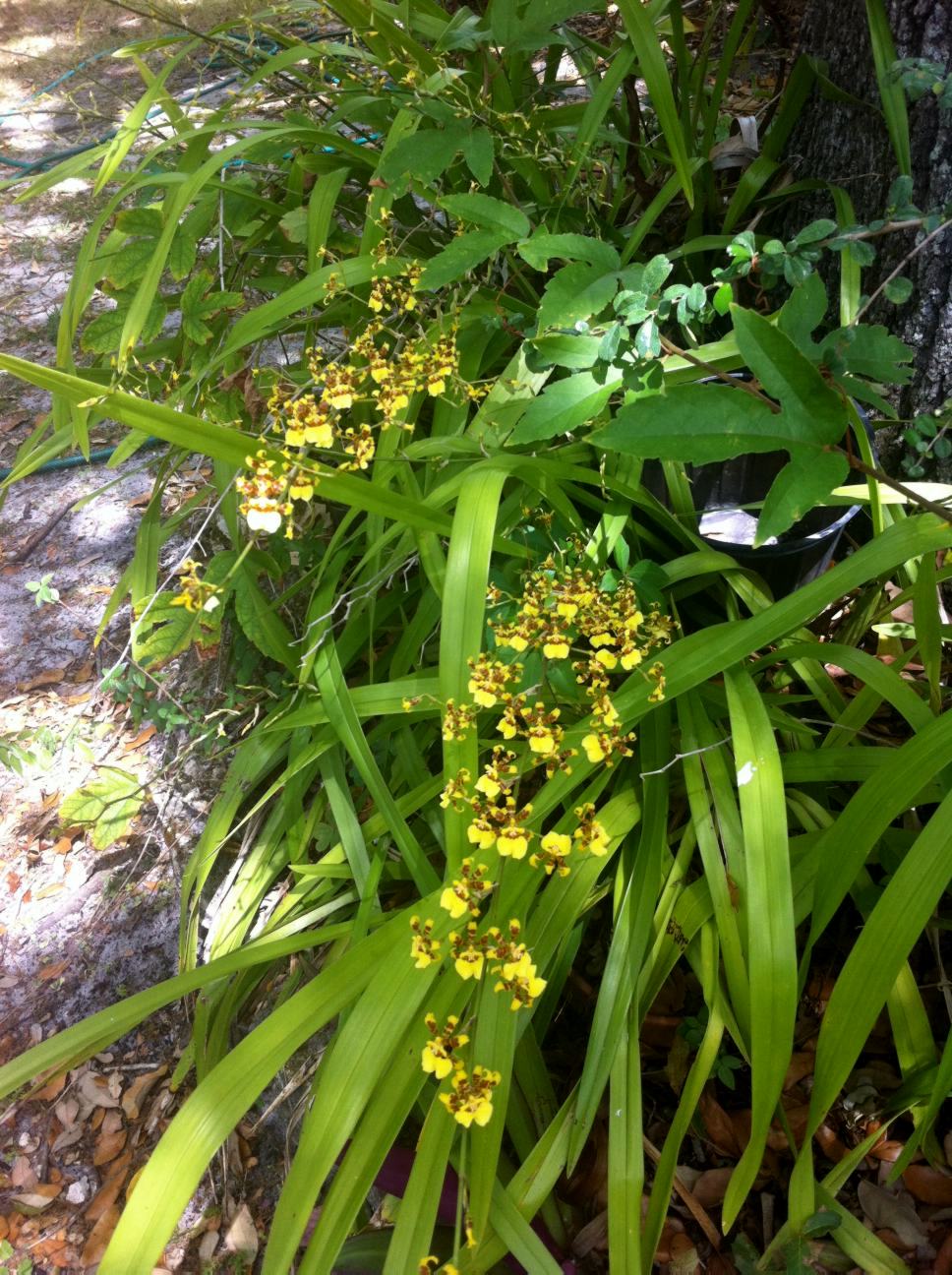Since Friday this week, there is an orchid festival at the Fairchild Tropical Botanic Garden (FTBG) and today is the last day. I wanted to go there for some snap shots, but could not get around to face that chore. But have no fear, my orchid is right here, and this one has a tale to tell you. This is part of my Oncidium sphacelatum orchid, one of over 750 species in the genus Oncidium which is a member of the large Orchid family (Orchidaceae.)
I have this orchid for years and it grows into spectacular specimen. Oncidium is Greek for swelling tubercle. Interestingly, sphacelatum means dead or diseased. This species, along with its close relatives, has long been associated with the dead by the native peoples of Central and South America. For years, I knew that this orchid is insect pollinated but I always had the wrong information that it is pollinated by male bees trying to mate with the flowers because they move with the wind just like a swarm of female bees. But that behavior really belongs to orchids of the genus Ophrys and Trichocereus, which I do not have. These orchids use sexual deception to attract pollinators to their flowers. In sexual deception, an orchid attracts male pollinators by producing the sex pheromone of virgin female pollinators in addition to providing visual and tactile cues, in this case, the flowers mimic female insects.
The truth is that this O. sphacelatum is pollinated by aggressive bees that drive other insects from their territory. Their flowers mimic the invading bees and got pollinated by the attacks. Now I stand corrected. This orchid is not pollinated by love. Rather, it is impregnated by an act of war! Can you believe that?


